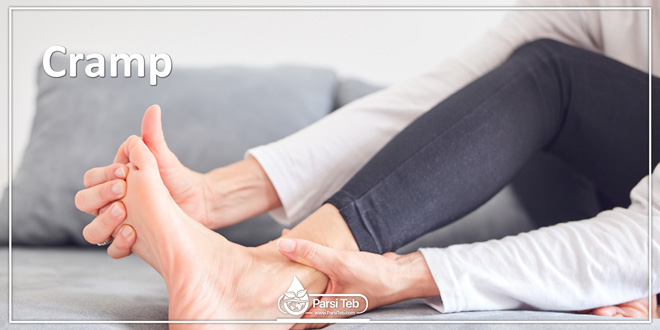Definition
A muscle cramp is a sudden and involuntary contraction of one or more of your muscles. If you’ve ever been awakened in the night or stopped in your tracks by a sudden charley horse, you know that muscle cramps can cause excruciating pain. Though generally harmless, muscle cramps can make it temporarily impossible to use the affected muscle.
Long periods of exercise or physical labor, particularly in hot weather, may lead to muscle cramps. Some medications and certain medical conditions also may cause muscle cramps.
You can usually treat muscle cramps at home with self-care measures.
Signs and symptoms of a muscle cramp include:
* Sudden and sharp muscle pain (spasm, contraction), often in your legs
* A hard lump of muscle tissue that you can feel or is visible beneath your skin
When to see a doctor
Muscle cramps usually disappear on their own and are rarely serious enough to require medical care. However, see your doctor if your cramps:
* Cause severe discomfort
* Happen frequently
* Don’t improve with self-care
* Aren’t associated with an obvious cause, such as strenuous exercise
Causes
Overuse of a muscle, dehydration, muscle strain or simply holding a position for a prolonged period of time may result in a muscle cramp. Athletes who become fatigued and dehydrated while participating in warm-weather sports frequently develop muscle cramps. Another common type of muscle cramp — nocturnal cramps — occurs in your calf muscles or toes during sleep.
In many cases, however, the exact cause of a muscle cramp isn’t known.
Although most muscle cramps are harmless, some may be related to an underlying medical condition, such as:
* Inadequate blood supply. Narrowing of the arteries that deliver blood to your legs (arteriosclerosis of the extremities) can produce cramp-like pain in your legs and feet while you’re exercising. These cramps usually go away soon after you stop exercising.
* Nerve compression. Compression of nerves in your spine (lumbar stenosis) also can produce cramp-like pain in your legs. The pain usually worsens the longer you walk. Walking in a slightly flexed position — such as you would employ when pushing a shopping cart ahead of you — may improve your symptoms.
* Mineral depletion. Too little potassium, calcium or magnesium in your diet can contribute to leg cramps. Some diuretic medications prescribed for high blood pressure cause loss of potassium.
Muscle cramps are also part of certain conditions such as nerve, kidney, thyroid or hormone disorders; diabetes; hypoglycemia; and anemia.
Preparing for your appointment
By Mayo Clinic staff
Make an appointment with your doctor if you have muscle cramps that are severe, frequent and not getting better with self-care.
When you see your doctor, bring a list of your key medical information, including any allergies or medical conditions, and the names of all the medications, vitamins and supplements you’re taking.
Your doctor is likely to ask a number of questions to help determine if you should have any tests or see a specialist. To make the most of your appointment, consider in advance your answers to the following:
* When did you first develop cramps?
* How frequent and severe are your cramps?
* Does anything typically precede your cramps, such as mild to strenuous exercise?
* Do you ever develop cramps while you’re resting?
* Does stretching relieve your cramps?
* Do you have any other symptoms, including any muscle weakness, pain, or the sensation that a foot, hand or limb has fallen asleep?
* Do any of your close blood relatives have a history of muscle cramps?
* Have you noticed any changes in your urine after exercise?
* Do you use any recreational or sports-enhancement drugs?
 Parsi Teb Physical and Mental Health Journal
Parsi Teb Physical and Mental Health Journal 



